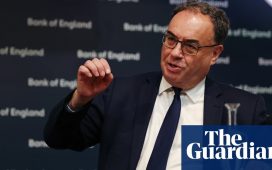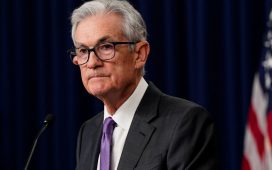Many investors would like to use their money to help tackle climate change, but figuring out how has not always been easy. Now a fund that benefits 38,000 current and retired clergy and other employees of the Church of England could offer a potential solution.
The Church of England Pensions Board, which manages 2.8 billion pounds (or $3.7 billion), this week announced an index that rewards companies working to curb their carbon-dioxide emissions in line with the targets of the 2015 Paris agreement, and bars companies that are perceived as environmental laggards.
The church’s pension board is transferring £600 million to the new index, which it helped design with FTSE Russell, an index provider.
Companies that rate well under a series of metrics developed for the pension fund receive more weight in the index, meaning more of their shares will be purchased, while those that don’t score well will either receive reduced weight or be excluded.
Oil producers are not excluded from the index. Europe’s largest oil company, Royal Dutch Shell, which has worked closely with the Church of England in developing ambitious targets for reducing its carbon dioxide emissions, is included, as is Repsol, the Spanish oil company, which has also announced far-reaching goals.
Exxon Mobil, Chevron and BP, which have been less ambitious according to the index’s metrics, are at this point excluded.
Adam Matthews, the church fund’s director of ethics and engagement and a prominent activist on climate matters, has worked with companies like Shell to set targets for reducing emissions.
Companies face a choice to put “in place targets and strategies aligned to Paris” or “work against the long-term interests of beneficiaries and wider society and be excluded,” he said in a statement.
Exxon and other companies not included in the index could win their way back into the fold by setting appropriate targets, the church fund says.
Large investment firms are showing increasing interest in the risks and rewards of climate and other environmental issues. Enormous sums could potentially be used to influence corporate behavior. Laurence D. Fink, chief executive of BlackRock, which has nearly $7 trillion under management, recently vowed to put sustainability at the core of the firm’s investment approach.
Mr. Matthews is among those investment professionals who say it is incumbent on fund managers to understand the risks that climate change can pose to investors’ portfolios. The earnings and value of oil companies, for example, could plummet if climate-change concerns result in less consumption of these emissions-producing fuels.
Pension managers need to assess the risks of climate change to their investments to ensure they can provide for their beneficiaries in the future, Mr. Matthews said in an interview.
To remain invested in companies without “understanding how they are positioned in climate transition poses a real risk,” he said.
Mr. Matthews acknowledges that it will take time for oil companies to shift their investments away from fossil fuels to clean energy. Along these lines, he has helped set up a unit at the London School of Economics called the Transition Pathway Initiative. The initiative evaluates oil companies and other large emitters of carbon, such as steel producers and electric utilities, on the basis of their commitments to reduce their carbon output and the quality of their strategies for doing so.
The Church of England’s new index, which is currently for institutional investors, is trying to use the London School of Economics data to give investors exposure to companies that are positioned to perform well in the future on climate matters. Earlier generations of indexes relied on static information like fossil fuel reserves or emissions measurements.
“You have got forward-looking information, and that is quite groundbreaking,” said Faith Ward, chief responsible investment officer for the Brunel Pension Partnership, which manages around £30 billion for British government agencies and municipalities.






